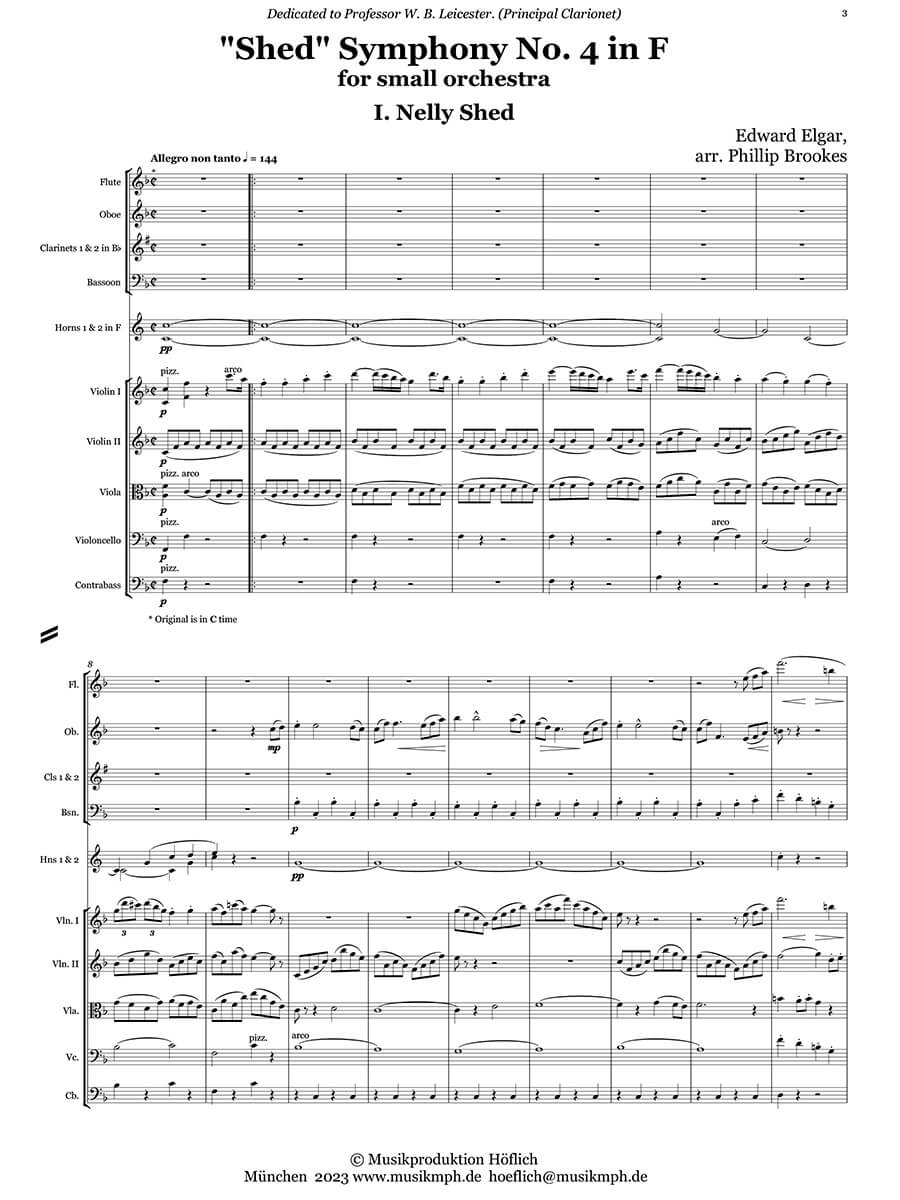“Shed” Symphony No. 4 in F arranged for small orchestra from Harmony Music 2 and Four Dance Movements for wind quintet by Phillip Brookes (first print)
Elgar, Edward
20,00 €
Preface
Edward Elgar – ‘Shed’ Symphony No. 4 in F, arranged for small orchestra by P. Brookes
(b. 2 June 1857; d. 24 February 1934, Worcester)
arranged for small orchestra by Phillip Brookes
from Harmony Music 2 and four dances for wind quintet
Nelly Shed p.3
Alphonsa Gavotte p.20
Sarabande p.25
Giga p.28
Polonaise & Musette (Hell and Tommy’) p. 34
Preface
Elgar was one of a small handful of composers who were completely self-taught. True, before the middle of the 18th century, self-taught composers were more numerous because music academies were less common. But even then most were the pupils of eminent performers – organists, violinists or kapellmeisters. Of Elgar’s immediate predecessors, none had less formal training than he did, and only Richard Wagner seems to have combined scant training with great talent. Elgar’s abilities developed naturally out of a childhood and youth surrounded by practical music-making. His father, William Henry Elgar, was a partner in a music shop in Worcester High Street, but even then he earned much of his money by travelling around, tuning the pianos of the wealthy members of society. William played the violin and became a regular in local orchestras, especially in those gathered for the Three Choirs Festival, of which Worcester Cathedral, along with Gloucester and Hereford, was one of the hosts. He also played the organ at St. George’s, the local Catholic church (the family had converted to Catholicism before Edward Elgar’s birth). It is doubtful if William Elgar was a devoted Catholic, however, since he is said to have regularly left the church during the sermon to drink at a local tavern.
It is hardly surprising, then, that young Edward grew up with music. He eventually joined his father as a violinist in the Three Choirs orchestra, and replaced him as the organist at St. George’s. But he never had more than rudimentary lessons on the violin or piano: a natural talent instead began to emerge that was ‘at home’ in the world of practical music-making. …
Read full preface / Das ganze Vorwort lesen > HERE
Score Data
| Special Edition | The Phillip Brookes Collection |
|---|---|
| Genre | Orchestra |
| Pages | 48 |
| Size | 225 x 320 mm |
| Printing | First print |
| Performance Materials | available |
